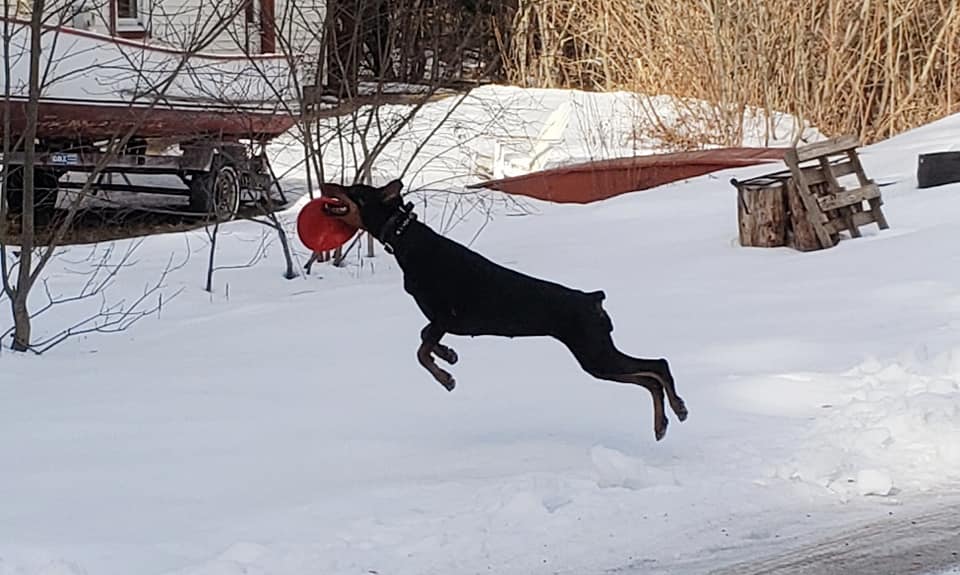| Your family (maybe just you) has hopefully planned this day for awhile. Important decisions were made on where to get your new adult dog from. Breed generalities may have been studied. Family members have been consulted on what kind of dog they wish to have. Puppies have been decided against for many valid reasons. The day has arrived to pick up your new canine companion and future best friend. I want you to be aware of some common mistakes that may make your lives harder than they need to be. |
PROS AND CONS OF OWNING A SMALL PET DOG
CONSIDERATIONS FOR GETTING A PET DOG
GETTING ANOTHER DOG, PREPERATION AND PLANNING ARE REQUIRED
SO YOU DECIDED YOU WANT A DOG, CONSIDER THESE ITEMS FIRST
HOW TO MATCH YOUR NEW PUPPY TO YOUR LIFESTYLE
WORK WITH THE DOG YOU HAVE NOT THE DOG YOU EXPECTED TO HAVE
YOU FOUND A GREAT ADULT DOG TO ADD TO YOUR FAMILY, NOW WHAT?
Also, even though this article is not about puppies this time, also review this article. Some of the mistakes can be the same:
Common Mistakes That Owners Make with Their New Puppy
Now, you have your new adult dog, and your adult dog is coming home. Unless you managed to find a very savvy, socialized, publicly and correctly exposed, and/or retired service or therapy dog, your new dog is probably delighted but also stressed out. These two things can be true at the same time. It is doubtful you have brought home the less than 1% (my personal estimation) of bomb proof dogs out there with no stress or worry in their lives. If you have, congratulations to you! In general though, there are going to be one or two things to learn about your new dog.
Avoid these pitfalls:
- Unlimited Freedom Why? Unlimited freedom will allow for bad behaviors to not only start but be rehearsed. This is something that is earned by some dogs with time, and some dogs will always need a degree of limited freedom (but be more free than they were)
- Assuming you know the dog right away Why? Once the dog gets comfortable, knows you, and has observed the household, their behavior MAY change. It could change for the better or you could find some problems rising up to the top. If you do the logical steps in bringing in any new dog, you won't hurt the new dog and you will be better prepared if things start to change. This is something called Behavioral Bends. If you have a rescue dog, you really might not not what came before in their history. Some will relax into the new safety, and others will begin practicing what worked in the past when they were probably afraid. Although sometimes it might be overconfidence or confidence that it works, and they aren't particularly afraid. The latter are the harder temperaments to work with.
- Being very handsy with the dog right away Why? You may later discover that your dog does not like to be held so tight or touched so much. That is not that bad, but if you cross the boundary too many times and ignore warnings, the next warning might be with teeth.
- Very involved with the dog with no planned down time for the dog Why? Like I said above, your dog is probably going to be experiencing some stress and anxiousness in at least the first few weeks. You know how you need a break (sometimes from your significant other), they do too. However, they can't get away from you now if you are constantly pursuing them.
- Not giving any thought to structure and predictability Why? An anxious or new dog needs for things to become predictable to a point. No, you do not need to plan every second of every day. I usually have a time I let out, a time I feed, I time we walk or play, a time we train (even if it is just calming exercises), a time they are put up for a nap, their free/downtime, and so on.
- Assuming everyone and everything should have unlimited access to your dog Why? Your dog might not like that. It might not be obvious at first, but in the meantime your dog realizes you do not have their back. Then they will think their job is to go on defense (with some dogs obviously not all dogs). So just get to know our dogs likes and dislikes for awhile before sticking them in the deep end.
- Expecting too much from your new dog Why? Relationships are a two way street. You have to take care of your new dog first, and provide for your new dogs needs. They should not have an immediate and possibly unreasonable for their temperament job at first.
- Socializing or exposing incorrectly and too fast Why? See point 5
- Avoiding crate and leash training Why? Both of these things are for the safety of your new dog. One is so they don't get into anything they should not while you are not actively supervising them (or having them tethered to you). Electrical cords, foods, medicines, and so on are not good for dogs to get into (especially if they have never been exposed to them). The leash is sometimes the difference between life and death for your dog if they get loose in an unsafe area or run away. Also, there are leash laws, and you want your dog to know how to behave when they need to be leashed.

 RSS Feed
RSS Feed